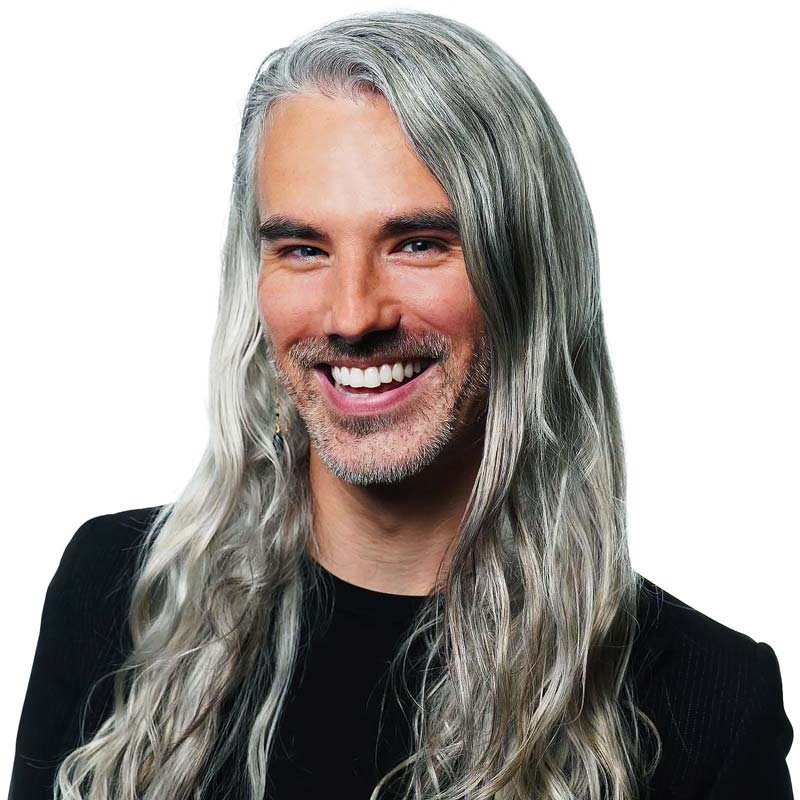Medical gaslighting, mistreatment common among LGBTQ+ patients
Many patients say they are dismissed or their concerns are minimized. Dr. Dustin Nowaskie of OutCare Health talks about the difficulties for LGBTQ+ patients in getting the care they need.
It’s all too common for LGBTQ+ patients to avoid going to doctors, and it’s not hard to understand why.
Too many LGBTQ+ patients are suffering 'medical gaslighting' and other mistreatment, says Dr. Dustin Nowaskie, president of OutCare Health.

LGBTQ+ patients routinely say their concerns aren’t taken seriously or they aren’t treated respectfully by clinicians, or other employees in a hospital or medical office. LGBTQ+ patients are far more likely to experience medical gaslighting, according to a recent survey by Healthgrades and OutCare Health.
Nearly half (47%) of LGBTQ+ patients say they have experienced “medical gaslighting” in the past two years, compared to 26% of cisgender, heterosexual people.
Dr. Dustin Nowaskie, president, founder and chief medical officer of OutCare Health, says those experiences sometimes deter patients from seeking the care they need.
“The stigma that occurs within healthcare can be so profound, it can lead people to delay care or to forgo their entire medical journey,” Nowaskie tells Chief Healthcare Executive®.
Nowaskie, a queer, nonbinary psychiatrist, says many LGBTQ+ patients have developed a mistrust of the medical establishment, and with good reason. The survey sheds light on that lack of trust, with barely half (54%) of LGBTQ+ individuals saying they trust primary care providers, compared to 70% of cisgender, heterosexual respondents.
In order to improve, Nowaskie says it’s critical to recognize the problem.
“Things aren't great,” Nowaskie says. “There are a lot of disparities, a lot of stigma, a lot of discrimination amongst LGBTQ+ communities, and that has been pervasive for decades.”
‘All in your head?’
Gaslighting is used commonly in pop culture, so Nowaskie says Healthgrades and OutCare were careful to define it and in asking respondents about their experiences.
As Nowaskie says, participants were asked, “Have you ever felt dismissed or not taken seriously by a doctor when you're discussing your health concerns? Have doctors ever minimized or ignored your symptoms because they didn't believe that they were significant or indicative of a health issue? Were you ever told that your symptoms were all in your head? Have you ever stopped treatment because the doctor didn't take your symptoms or concerns seriously?”
Patients were also asked if they were discouraged from asking questions by their doctor, or dissuaded from seeking a second opinion.
“All of these items together, really define for us what would be considered medical-related gaslighting,” Nowaskie says.
LGBTQ+ patients are more than twice as likely as heterosexual patients to experience medical-related trauma, according to the Healthgrades/Outcare survey. The survey found nearly 1 in 5 LGBTQ+ individuals (18%) said they experienced medical-related trauma in the past two years, compared to 8% of cisgender, heterosexual respondents.
Nowaskie treats a handful of patients who say they went years without seeing a provider.
For some LGBTQ+ patients, avoiding doctors or delaying care can lead to more serious complications, Nowaskie says.
Avoiding care
The disappointing experiences for LGBTQ+ patients aren’t limited to primary care or hospital treatment. Nowaskie says some LGBTQ+ have faced poor treatment when seeing mental health clinicians. “Really, we see the same themes over and over and over,” Nowaskie says.
“It's no better than similar types of other healthcare specialties out there,” Nowaskie adds. “We see the same patterns consistently throughout the entire healthcare industry.”
Younger LGBTQ+ patients can be reluctant to seek care at all, and may not develop relationships with doctors, Nowaskie says.
“Unfortunately, we see that there is so much stigma, discrimination across so many contexts, socially, politically and in healthcare, that young adults are terrified to actually engage in their care because they are scared of what may happen at those initial visits,” Nowaskie says.
Clinicians need to learn more about serving LGBTQ+ patients, and Nowaskie also urges hospitals and other healthcare organizations to provide regular, ongoing training. Such training should go to all staff members across the organization, Nowaskie stresses.
A little over a year ago, Healthgrades teamed with OutCare Health to make it easier for LGBTQ+ individuals to find providers who would welcome them. Healthgrades launched a new LGBTQ+ “Affirming Care Designation” on its website, and incorporated OutCare Health’s “Outlist,” a directory of more than 3,500 LGBTQ+ affirming providers.
So far, the partnership has succeeded in helping LGBTQ+ patients find good providers, Nowaskie says.
While OutCare has helped connect patients to clinicians, Nowaskie says Healthgrades has amplified the organization’s reach.
“I have been very, very impressed with how data-driven, mission-driven, they are, and they really have met the expectations that I initially had and the ones that we continue to have as an organization. We are reaching so many more communities,” Nowaskie says.
Healthgrades is using its resources to amplify work in improving health equity for LGBTQ+ patients, Nowaskie says.
“I just can't appreciate them enough for really coming to us, understanding that more needs to be done,” Nowaskie says. “And really, this has just been a beautiful partnership to work with them.”